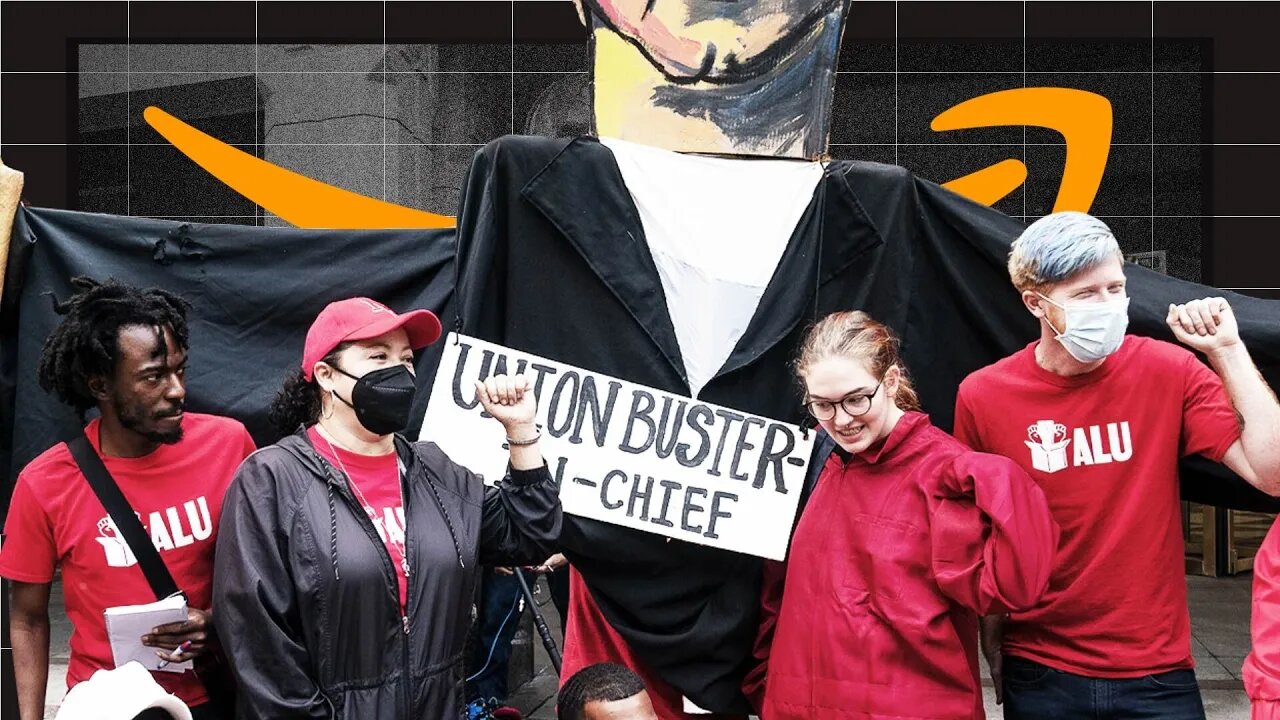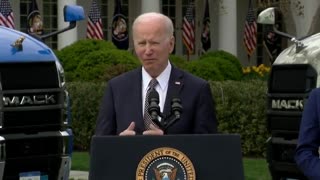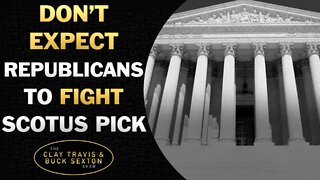Premium Only Content

Don't Expect Unions To Make a Comeback
Big Labor supporters like President Joe Biden are cheering the first successful vote to unionize workers at an Amazon facility, in this case, an 8,000-worker warehouse in Staten Island, New York. The effort was spearheaded by a couple of best friends who built support on TikTok, among other places. "Amazon, here we come," promised the president at a recent union rally.
------------------
----------------
The New York Times gleefully called it "one of the most significant labor victories in a generation" and indicative of "an era of rising worker power." Former Times labor reporter Steven Greenhouse called it "by far the biggest, beating-the-odds David versus Goliath unionization win I've seen" in 25 years of reporting.
But the Staten Island story is overshadowed by other colossal unionization failures, including attempts to organize other Amazon warehouses, such as in Bessemer, Alabama, where last year 71 percent voted against joining the Retail, Wholesale, and Department Store Union, which lost about a quarter of its members from 2002 to 2019.
It's proven so hard for unions to gain a toehold at Amazon because it's actually a pretty good place to work. If we are indeed in a time of "rising worker power," that's because of incredibly low unemployment rates and historically high job vacancies giving the rank and file more leverage than ever to negotiate more pay and better conditions.
For its part, Amazon has consistently increased its wages and benefits to attract and retain workers, especially during the pandemic, when it went on a hiring spree. It set a minimum wage of $15 an hour back in 2018 and last year boosted its starting wage to $18, while also offering health insurance, reimbursement for college courses, and signing bonuses of up to $3,000. More than anything else, those sorts of perks explain the overwhelming failure of unionization efforts. For the second year in a row, LinkedIn named Amazon the top company to work at if you want to "grow your career."
It's not just Amazon, either. The main reason that unions in the private sector have been fading for decades isn't that there are union-busting Pinkertons terrorizing organizers but because of the changing nature of work and the willingness of employers to offer better terms. Unions flourished during the era of assembly lines and standardization, when schedules were rigid and outputs, employees, and even customers were expected to be identical. As everything in our lives becomes more personalized, it only makes sense unions would fade, which is exactly what's happened.
In 2021, just 6 percent of private sector workers were unionized, down from 17 percent in 1983. Unions are even losing clout in the public sector. After peaking at 39 percent in 1994, unionization among federal, state, and local employees is down to 34 percent and shows little sign of turning around.
If K-12 teachers are any indication, the decline is explained by unions' inability to increase starting salaries. While unions such as the National Education Association and the American Federation of Teachers successfully lobby for health insurance and retirement benefits, the inflation-adjusted average starting salaries for teachers have actually declined from a decade ago. Why keep paying dues to a union that isn't delivering to younger teachers who are more interested in money now rather than promises down the road?
Labor organizers are turning to the federal government for help in strong-arming workers to rejoin their ranks. The Protecting the Right to Organize (PRO) Act would abolish "right to work" laws that keep unions from forcing nonmembers to pay dues in 27 states. But the PRO Act, which would reclassify millions of independent contractors as employees, has no chance of passing an evenly divided Senate, especially in a midterm election year where the Democrats are already expected to lose big in both houses.
Biden can come after Amazon, Starbucks, and any other public or private sector employer all he wants, but it's unlikely he—or any other politician or labor organizer—is going to be able to turn around a decadeslong decline in union membership.
The biggest problem for unions, it turns out, is that workers are making real progress without them.
Written and Narrated by Nick Gillespie. Edited by Regan Taylor.
-
 1:06:08
1:06:08
ReasonTV
7 days agoWhy do we refuse to learn from history? | Tyler Cowen
6371 -
 1:25
1:25
Sean Hannity
2 years agoDon't Call It A Comeback
3.07K118 -
 10:29
10:29
The Clay Travis & Buck Sexton Show
2 years agoDon't Expect Republicans to Fight the SCOTUS Pick
74425 -
 4:00
4:00
Only The SAVVY
3 years agoDon't Expect a Bitcoin Winter | Lyn Alden
52 -
 1:17
1:17
MillennialManMotionsEntertainmentLLC
3 years agoIn Life, Don't Expect . . .
122 -
 9:13
9:13
Finance and Freedom
2 years agoDon't Make This TSP Mistake!
64 -
 5:50
5:50
Rob Almasi
2 years ago $0.01 earnedDON'T MAKE THIS MISTAKE (Stocks)
633 -
 0:46
0:46
Inspirational and motivation for today
3 years agoWithout persistent action don't expect any results
64 -
 50:58
50:58
Grant Stinchfield
2 hours ago $1.41 earnedD.C. Judge Defies Trump! J6ers Still Being Held Hostage Despite Pardon!
11K9 -

The Shannon Joy Show
3 hours ago🔥🔥WARP SPEED 2.0 On Steroids! Trump Announces STARGATE ‘The LARGEST AI Infrastructure Project In History’ To Expand mRNA Tech & Surveillance🔥🔥
10.1K5